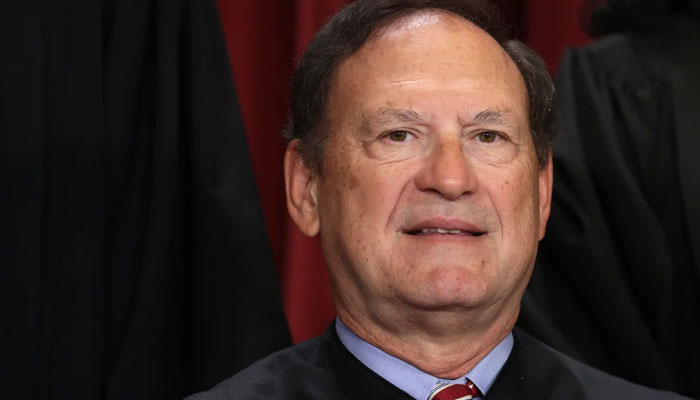Justice Alito slams Democrats, says Congress cannot regulate Supreme Court ethics
In an interview with The Wall Street Journal, Alito declared that Congress lacks constitutional authority to regulate Supreme Court
Justice Samuel Alito's strong opposition to Democratic lawmakers' efforts to impose ethics rules on the Supreme Court has ignited a heated showdown at Capitol Hill.
Alito, a conservative judge appointed by George W. Bush, made his stance clear in an interview with The Wall Street Journal editorial page. He boldly asserted that Congress lacks the constitutional authority to regulate the conduct of the nation's highest court, firmly defending its autonomy.
The Senate Judiciary Committee's recent approval of a bill seeking to create a binding ethical code for the Supreme Court has driven the escalating clash. Democrats, spurred by stories exposing questionable ethical decisions and a lack of transparency within the court, are keen to address these concerns through legislation.
However, Justice Alito remains unwavering in his position, asserting that the Constitution does not grant Congress the power to enact such regulations. He insists that the court's actions should not be subject to external influence and that any attempts to do so would undermine the court's legitimacy.
Notably, Alito's decision to pre-empt a report on him by publishing a Wall Street Journal op-ed has drawn significant attention. The Justice expressed his frustration at the misinformation surrounding him and the lack of support from others, prompting him to take a proactive approach in defending himself.
The clash between Justice Alito and Democratic senators has broader implications for the future of the court and its ethical standards. Chief Justice John Roberts has also raised doubts about Congress' authority to regulate the court's conduct, further fueling the debate.
With Republican senators firmly opposing the ethics bill, its chances of survival appear slim due to an impending filibuster. Consequently, the legislation seems destined for defeat, at least in the short term.
As the dispute continues to captivate the nation's attention, questions arise about the broader scope of Congress' power to regulate not only the Supreme Court but also other branches of government. The controversy surrounding Justice Alito's views has thrust the issue of ethics and transparency in the highest echelons of power into the spotlight, with no immediate resolution in sight.
-
Las Vegas father shoots daughter's boyfriend, then calls police himself
-
'Fake' sexual assault report lands Kentucky teen in court
-
Woman arrested months after allegedly staging husband’s murder as suicide
-
Bangladesh sees high turnout in landmark national election
-
Lufthansa cancels hundreds of flights amid pilot and cabin crew strike
-
South Korea ex-interior minister jailed for 7 Years in martial law case
-
UK economy shows modest growth of 0.1% amid ongoing budget uncertainty
-
EU leaders divided over ‘Buy European’ push at Belgium summit: How will it shape Europe's volatile economy?












